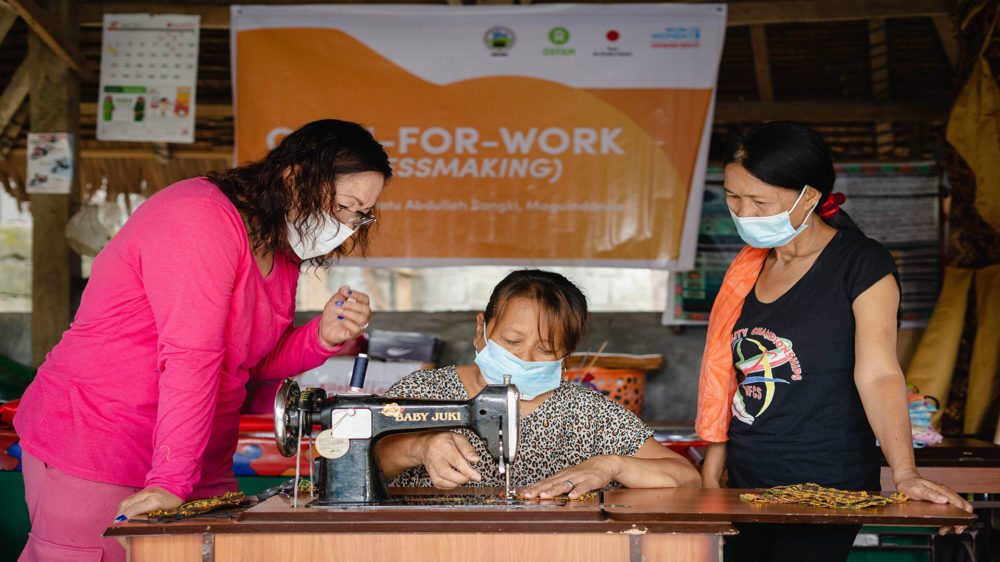
Johnny and Juanita Paz, a couple, carry the deeply rooted Filipino tradition of respect for older people. So, they decided to take care of not one but two sick elderly, both parents of Juanita, in a small house in Datu Abdullah Sangki, Maguindanao.
“My mother-in-law, 87, who is bedridden, was rushed to the hospital last April. It was her second stroke, and she was unconscious for three days. Fortunately, she survived. My father-in-law, 88, is blind for more than a year now. According to the doctor, it is due to old age and has no cure,” said Johnny.
The couple took the responsibility of caring for Juanita’s parents. They both take turns with household chores, farming, and caring for the elderly from dawn until midnight.
“We wake up at four in the morning so that we can feed my parents with arroz caldo (chicken porridge) and milk. They have difficulty chewing now, that’s why we opt for softer food. We also make sure they drink their medicines on time. They also cannot stand and walk, so we need to make sure that they are comfortable on the chair and the bed.”, said Juanita.
Both Johnny and Juanita mentioned that it is challenging to balance work, household chores, and caring for sick family members. In the early hours of the morning, Johnny tends the farm while Juanita is in the house. At nine in the morning, Juanita washes the clothes, and Johnny does the rinsing. In addition, if Juanita is cooking, Johnny takes care of her parents.
With the Cash for Care Work assistance, the couple used the money for the food, milk, medicines, and vitamins of their elderly parents to sustain them.
“It does not feel unmanly if I share housework with my wife. We are still equal. We need to work together and understand each other, and not to be apart until we grow old. Our love will still be the same.”
###
This story is written by Princess Taroza and is part of the Delivery of Cash for Work Opportunities and Messages on Covid-19 Awareness and Prevention to Women in Mindanao Project implemented by the Rural Development Institute of Sultan Kudarat (RDISK) and Oxfam with support from The People and Government of Japan and UN Women.




